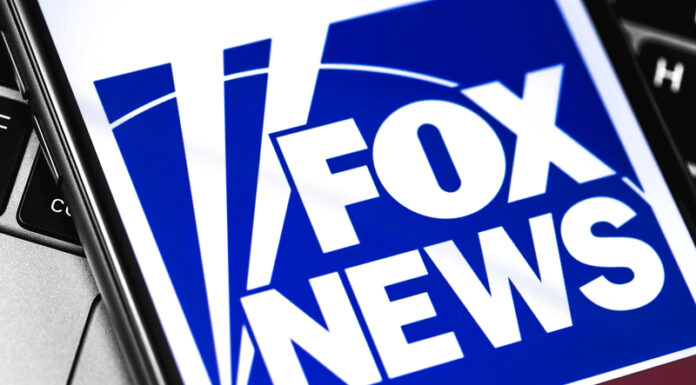A Fox News personality has delivered an unexpected mea culpa for the entire cable news industry during a recent podcast appearance, sparking renewed debate about the state of television journalism in America. Jessica Tarlov, co-host of Fox News’ top-rated show “The Five,” issued a sweeping apology on behalf of her industry during an appearance on the Prof G podcast on May 24, 2025.
During the podcast, which Tarlov co-hosts with Scott Galloway, she asked University of Virginia Center for Politics founder and director Larry Sabato what issue enraged him most about contemporary politics. Sabato responded by criticizing television news for amplifying social media trends rather than providing substantive information. He indicated that he watches more television news than ever before, but believes it primarily funnels what sells on social media platforms rather than the reverse.
“That makes me rage,” Sabato stated about television news during the Friday interview.
Tarlov acknowledged her role in perpetuating the problem, admitting that as someone working in cable news, she apologizes to the entire world for what the industry exports. Neither Fox News nor Tarlov responded to requests for comment regarding the remarks.
Sabato laughed at Tarlov’s admission while noting that social media’s dominance of political discourse represents the main issue facing contemporary journalism. He expressed wishful thinking about having access to time travel technology, suggesting he would use it to prevent the creation of social media platforms entirely. The political analyst emphasized that nothing can be done about social media’s influence, despite giving up hope for other technological advances like flying cars.
The conversation occurred against the backdrop of broader criticism within the cable news industry. Former NBC News anchor Chuck Todd recently told Mediaite in April 2025 that he had become demoralized by cable news content years before leaving the network in January 2025. Todd indicated that most cable news programming felt like people attempting to manipulate algorithms rather than providing information to viewers.
Todd placed blame for the industry’s dysfunction on the shift from journalism to entertainment, citing CNN’s O.J. Simpson trial coverage in the 1990s as a turning point when news divisions realized they could generate significant profits through sensationalized content. Before 1994, he noted, news divisions were simply instructed not to lose money rather than maximize revenue.
Former Fox News and NBC star Megyn Kelly similarly criticized the cable news industry during her podcast last year following the 2024 presidential election coverage. Kelly expressed disappointment that cable news had failed to evolve, maintaining the same approach despite technological and social changes over recent years. She described cable news programming as featuring stilted, guarded, and artificial conversations lasting approximately four minutes with predictable panel discussions.
Kelly suggested that while the physical appearance of television personalities has changed over time, the fundamental format and approach of cable news programming remains outdated and disconnected from contemporary media consumption patterns.
Sabato provided additional commentary to The Daily Beast regarding media coverage, expressing disappointment with what he characterized as “sane-washing” of political figures by multiple outlets. He indicated that various media companies, law firms, and universities have experienced intimidation effects, leading them to adopt defensive strategies focused on balanced coverage rather than aggressive journalism.
The political scientist suggested that some media organizations have chosen to keep their heads down and stick to both-sides coverage, hoping to avoid becoming targets themselves. However, Sabato warned that this approach may prove ineffective in the long term, as political figures who engage in intimidation tactics will eventually target all media organizations regardless of their coverage approach.
Tarlov’s comments came amid controversy surrounding her recent appearances on “The Five,” where she faced criticism for discussing cryptocurrency issues during discussions about other political topics. On May 23, 2025, during a panel discussion about potential health-related cover-ups in the previous administration, Tarlov shifted focus to President Donald Trump’s cryptocurrency activities, claiming he had made significant portions of his wealth through digital currency investments during his presidency.
Her co-hosts challenged Tarlov for changing subjects during the discussion, with Greg Gutfeld responding sharply to her deflection tactics. The exchange sparked social media backlash, with critics questioning Tarlov’s continued employment at Fox News and suggesting she might be better suited for other television programs.
The ongoing debate about cable news quality reflects broader concerns about media consumption patterns in the digital age. Industry veterans like Todd and Kelly have expressed frustration with the emphasis on entertainment value over informational content, while academics like Sabato worry about the influence of social media algorithms on traditional journalism practices.
As the cable news industry faces declining viewership among younger demographics and increasing competition from streaming platforms and podcasts, personalities like Tarlov find themselves caught between traditional television formats and evolving audience expectations. The tension between maintaining ratings and providing substantive journalism continues to challenge news organizations across the political spectrum.
Multiple cable news hosts have departed the industry in recent years, citing concerns about algorithmic influence and entertainment-focused programming. The criticism from within the industry suggests broader structural issues that extend beyond individual networks or political affiliations, affecting the entire cable news ecosystem.
Tarlov’s apology represents an unusual moment of self-reflection within an industry that rarely acknowledges its own shortcomings publicly. Her willingness to criticize the medium that provides her platform demonstrates the depth of concern among some industry professionals about cable news’ current trajectory and its impact on American political discourse.








